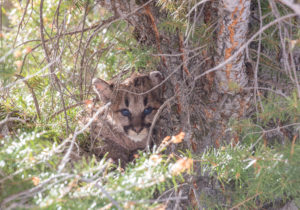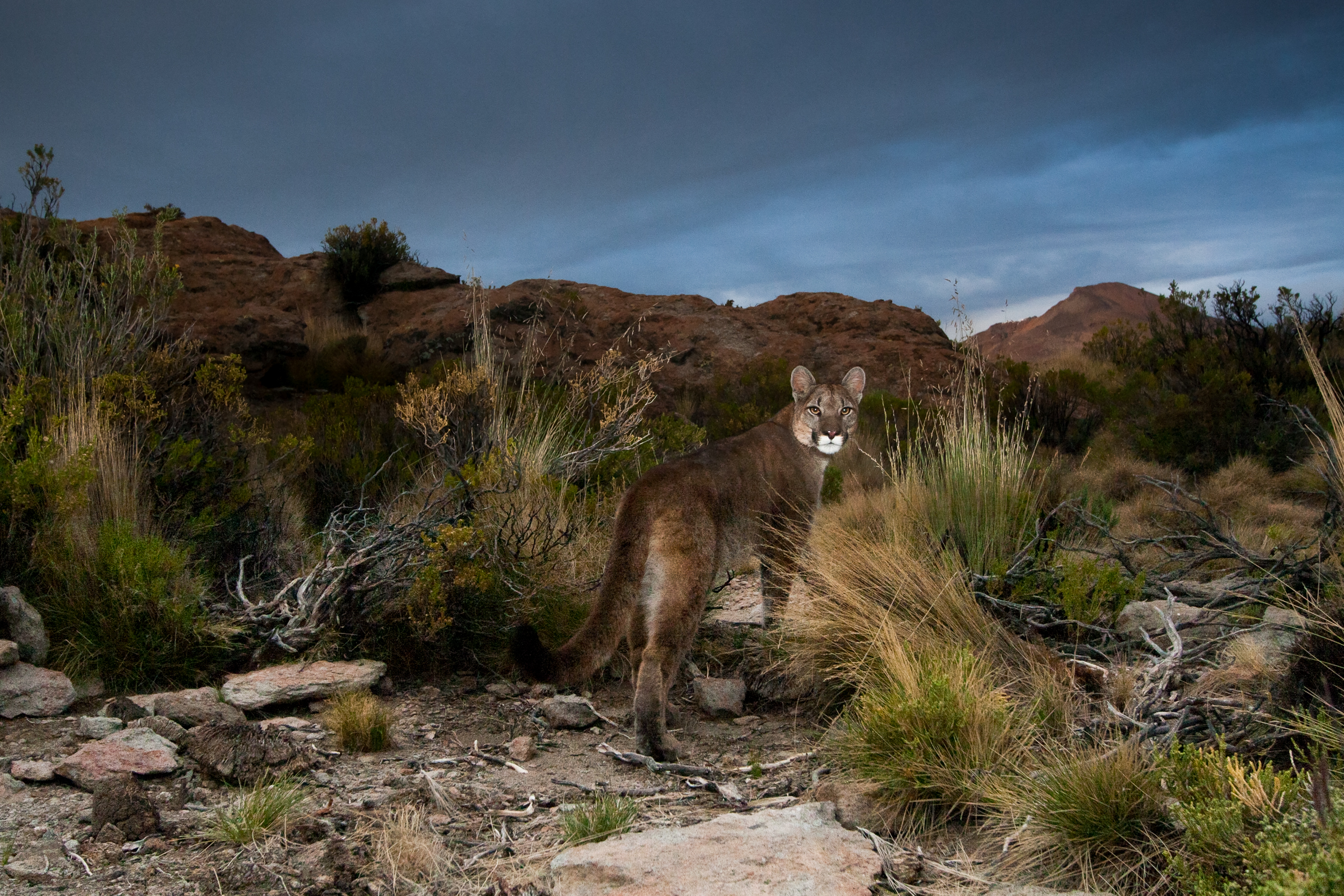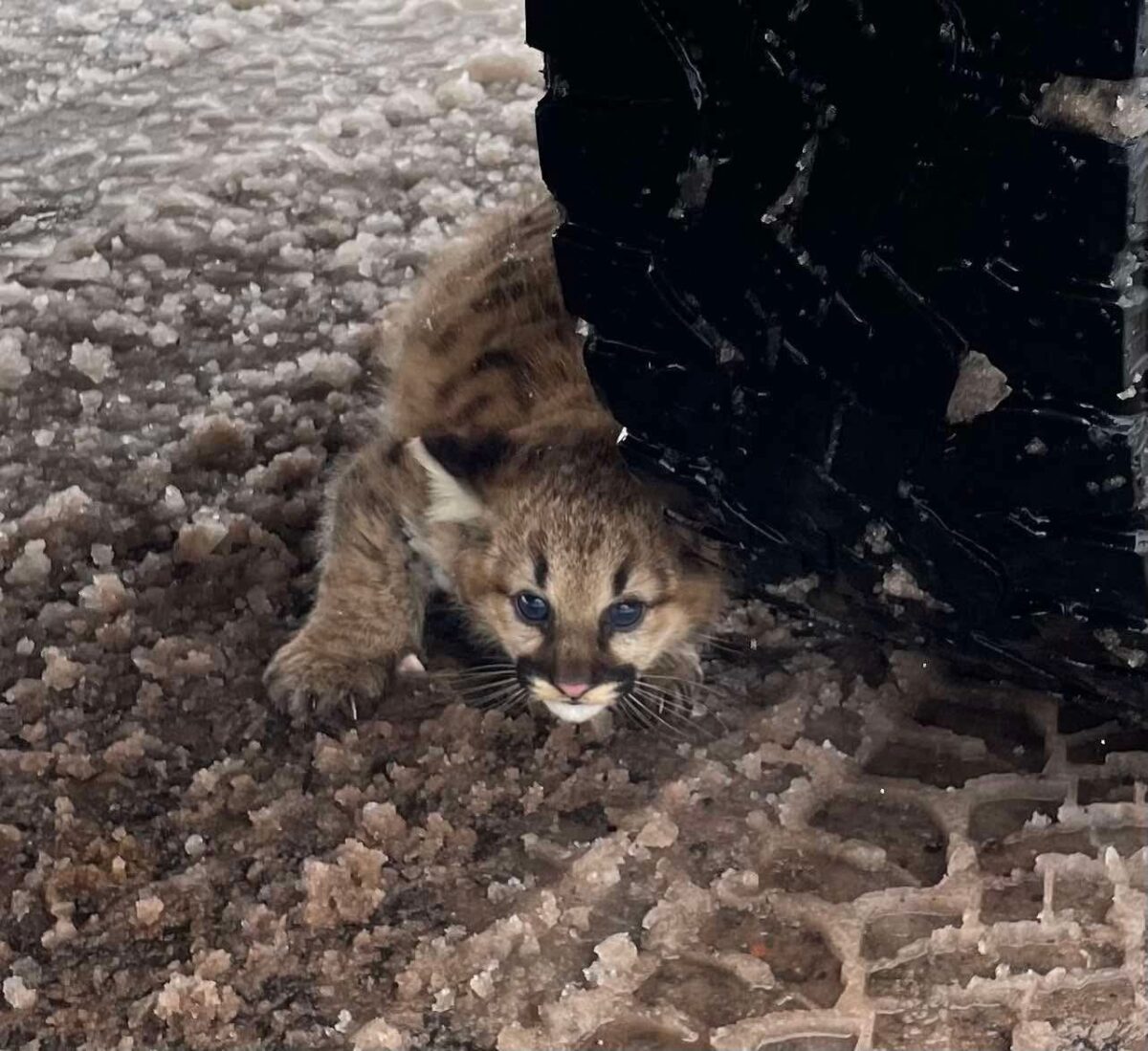 In the mountains, a cold, crisp winter has started to set in. There’s a distinct nip in the air as the snow falls lightly to the ground. A female mountain lion and mother of three young cubs, steps lightly in the freshly fallen snow, leaving behind only footsteps. Being careful not to make a sound, this new mother hides her cubs away so she can go out on the hunt to secure a meal for her young.
In the mountains, a cold, crisp winter has started to set in. There’s a distinct nip in the air as the snow falls lightly to the ground. A female mountain lion and mother of three young cubs, steps lightly in the freshly fallen snow, leaving behind only footsteps. Being careful not to make a sound, this new mother hides her cubs away so she can go out on the hunt to secure a meal for her young.
Stealthily, she moves through the mountains, taking every precaution to not draw attention to herself. In the distance, barking and howling can be heard, drawing ever nearer. Her ears perk as she investigates the sounds. Betrayed by her footsteps and scent left in the snow, the hounds are soon upon her. Trying as the might, she flees with all her strength, but the hounds close the gap. She takes refuge in a tree, hoping they’ll soon depart, but the familiar cacophony of human voices becomes more audible. She quivers as they approach. With no kittens in sight, the hunters decide to claim their trophy.
As night settles in, the hungry cubs call for their mom, but she won’t be coming back to the den. Not tonight, not ever again. The cubs, who are reliant on their mothers for up to two years, have been orphaned. Without her, they will not survive.
Every year in states throughout the West, mountain lions are pursued. Killed in the name of sport, for trophy, and under the guise of conservation, lions are relentlessly targeted. However, researchers have found that mountain lions are self-regulating and do not need to be managed. On top of that, trophy hunting has been found to increase conflicts rather than decrease and does not necessarily benefit prized game species like deer that hunters seek to protect. Most tragically, more lions are lost than are reported when a hunter checks in its quarry. Many kittens are orphaned and left to die. As mountain lions breed year round, pregnant females are also lost to hunters.
Mountain lions are a keystone species, crucial to the health of ecosystems as a whole. They are not a plague on deer or blood-thirsty animals lurking around every corner. It is high time we come to recognize the value of mountain lions and start paying attention to the science. We can and we must bring an end to trophy hunting. Not just for the sake of mountain lions, their kittens, and ecosystem health, but for our benefit as well.



 Facebook
Facebook Twitter
Twitter Send Email
Send Email


